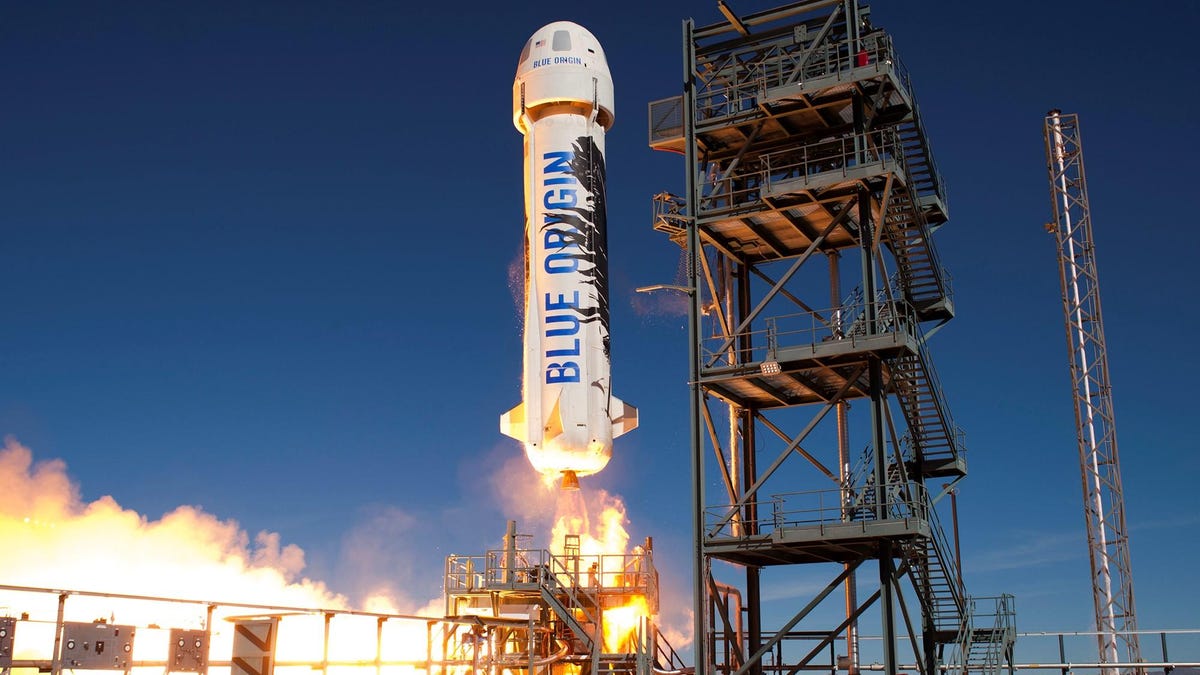Jeff Bezos, Blue Origin launch New Shepard rocket farther than ever
The Amazon founder's company successfully tests its escape system for space tourists who could fly soon.

A test launch of the New Shepard rocket.
Jeff Bezos' space company Blue Origin is one step closer to sending tourists into orbit after successfully completing the ninth test flight of its New Shepard rocket Tuesday from its test facility in west Texas.
The single-stage rocket launched at 10:11 a.m. Central Daylight Time to perform a high-altitude test of an escape motor. The motor is a safety feature that would pull the crew/passenger capsule away from a failing booster.
After reaching the edge of space, the capsule separated from the rocket booster and a few seconds later the escape motor fired, propelling the capsule laterally away from the main rocket.
A few minutes later, the booster landed softly back in west Texas as the capsule made its way back to the desert floor.
Blue Origin has tested the escape system in previous flights, but the company said Tuesday's test took things to the next level by firing the emergency motor in the vacuum of space for the first time.
"On Mission 9, we're firing the crew capsule escape motor at the highest altitude ever. We are stressing the rocket to test that astronauts can get away from an anomaly at any time during flight."
The New Shepard capsule also made it to its highest elevation ever by 50,000 feet (15,240 meters) on Tuesday, reaching 74 miles (119 kilometers).
Like SpaceX's Falcon rockets, New Shepard is designed to launch, land and be reused. The booster flown Tuesday has been launched twice previously.
Blue Origin's trademark flight dummy "Mannequin Skywalker" was aboard the flight, along with a handful of science and technology payloads, including a test of a new in-space Wi-Fi system, textiles for planned company space suits and other research projects.
The company hopes to begin flying humans to space soon, starting with its own employees followed by paying customers. Blue Origin has yet to announce a specific timeline or price tag for flying passengers, despite reports that a ticket to space could be between $200,000 and $300,000.
On the launch webcast Tuesday, company spokesperson Ariane Cornell said launching humans could begin "hopefully after a couple more tests."
If all those tests go well, perhaps we'll see great deals on a New Shepard flight for Amazon Prime Day 2019.
First published July 18, 8:27 a.m. PT.
Update, 10:30 a.m. PT: Adds video.
Technically Literate: Original works of short fiction with unique perspectives on tech, exclusively on CNET.
Crowd Control: A crowdsourced science fiction novel written by CNET readers.

